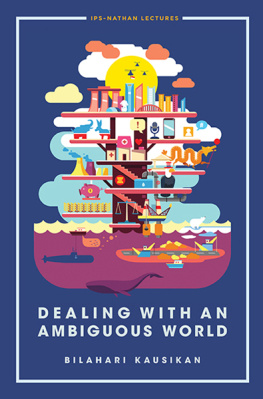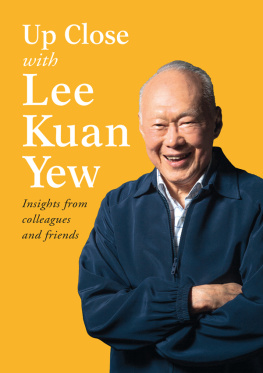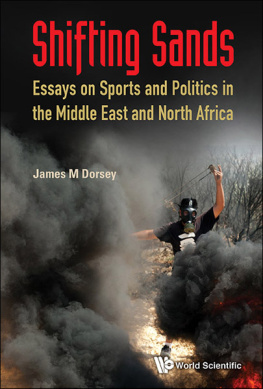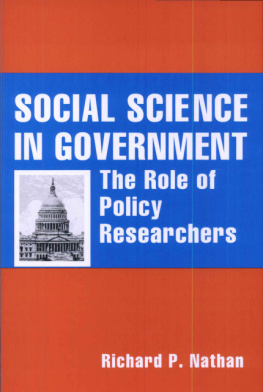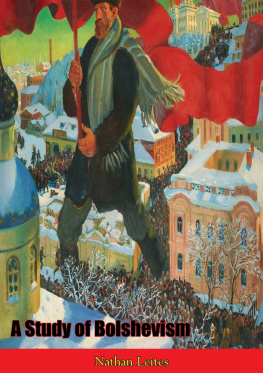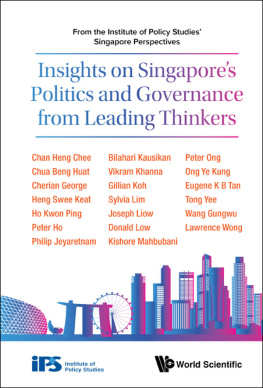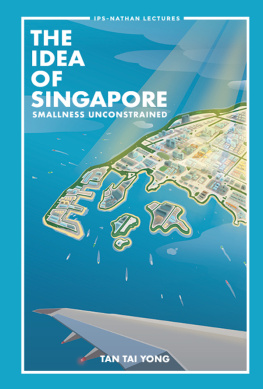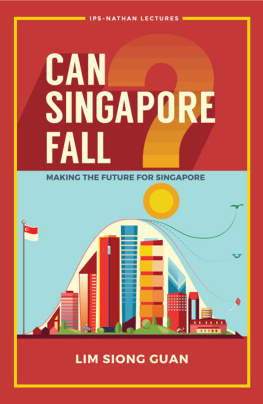

Published by
World Scientific Publishing Co. Pte. Ltd.
5 Toh Tuck Link, Singapore 596224
USA office: 27 Warren Street, Suite 401-402, Hackensack, NJ 07601
UK office: 57 Shelton Street, Covent Garden, London WC2H 9HE
British Library Cataloguing-in-Publication Data
A catalogue record for this book is available from the British Library.
DEALING WITH AN AMBIGUOUS WORLD
Copyright 2017 by World Scientific Publishing Co. Pte. Ltd.
All rights reserved. This book, or parts thereof, may not be reproduced in any form or by any means, electronic or mechanical, including photocopying, recording or any information storage and retrieval system now known or to be invented, without written permission from the publisher.
For photocopying of material in this volume, please pay a copying fee through the Copyright Clearance Center, Inc., 222 Rosewood Drive, Danvers, MA 01923, USA. In this case permission to photocopy is not required from the publisher.
ISBN 978-981-3201-99-6
ISBN 978-981-3202-00-9 (pbk)
Desk Editor: Sandhya Venkatesh
Typeset by Stallion Press
Email:
Printed in Singapore
THE S R NATHAN FELLOWSHIP FOR THE STUDY OF SINGAPORE AND THE IPS-NATHAN LECTURES
The late S R Nathan, Singapores sixth and longest-serving President, gave a lifetime of service to Singapore. To recognise Mr Nathans unique contributions, the Institute of Policy Studies (IPS) began the process of setting up the S R Nathan Fellowship for the Study of Singapore in 2012, to fund further research into public policy and governance issues. With generous support from individual and corporate donors, IPS successfully raised around S$5.9 million (including the matching government grant) in 2013 to endow the Fellowship.
The IPS-Nathan Lectures series was launched in 2014 as part of the S R Nathan Fellowship. The lectures are delivered at the National University of Singapore so as to be as accessible as possible to undergraduates and the wider community. They aim to enrich the already-vibrant intellectual and cultural life on campus, by advancing public understanding and discussion of issues of critical national interest.
More information on the S R Nathan Fellowship for the Study of Singapore is available on the IPS website.
Other books in the IPS-Nathan Lectures series:
The Ocean in a Drop Singapore: The Next Fifty Years
by Ho Kwon Ping
FOREWORD
T hese lectures deal with some international and regional issues that I believe are of importance to Singapore. It does not matter very much to me whether my compatriots agree or disagree with the substance of what I have to say. I hope of course that my arguments will not be dismissed as the mere ramblings of a pensioner. I would like them to at least provoke Singaporeans to think about these issues and form their own judgements about them.
The issues I discussed in my lectures, among others, will affect our future. If Singaporeans do not understand what is and is not possible for a city-state in Southeast Asia and make their own judgments about what is happening around us, they could be too easily swayed by external and internal influences whose foremost consideration is not Singapores well-being. I fear that this may already be happening.
I am not confident that most Singaporeans do in fact think sufficiently about foreign affairs, even though the information that would enable them to do so is widely available. Singapore leaders regularly speak about external developments. Singaporeans have access to an array of international publications, and our local newspapers provide comprehensive coverage of foreign affairs. Their regular coverage of Southeast Asia is superior to most international publications.
Social media is supplanting the mainstream media everywhere as the preferred source of information. The latter term has even taken on a vaguely negative connotation. Social media can be useful when the source of the news is credible and the information provided is factual. But social media too often conflates facts with opinion and both with entertainment. Everyone may be entitled to an opinion, but not all opinions are born equal. It takes informed judgement to sift valid opinion from nonsense.
Our education system is admired internationally, and rightly so. But it does not adequately prepare Singaporeans to think about foreign affairs. We have de-emphasised the study of history, including our own history, in our schools. National education in schools and elsewhere is ritualised to the extent that it often evokes cynicism rather than understanding and it is to my mind an open question how much good it really does. We should rethink how we do national education and improve it.
The universities have an even more serious problem, although in their case it is not a failing peculiar to Singapore. Academics everywhere and in all disciplines are today speaking mainly to each other and about narrower and narrower slices of what they study. They too often scorn being popular and too often write in jargon impenetrable to all but fellow illuminati. It may not matter very much in the hard sciences; it matters a great deal in the social sciences and humanities. But I cannot really blame the academics. They get little credit for writing comprehensibly and for a wide audience: what counts for their careers and for the rankings of their universities is publication in refereed journals. I recently read that the average article in refereed journals has two or three readers.
I studied international relations. After three decades of practice, I have come to the conclusion that any resemblance between what I studied and what I did for a living is almost coincidental. International relations theory is generally too mechanical, gives insufficient weight to human agency, and is often based on premises that are irrelevant to Singapores specific circumstances. It seems to me that the study of history, literature and philosophy is better preparation for understanding international affairs: history because we can be minimally certain only about what has already occurred; literature to deepen our understanding of human nature; philosophy to give us a broad view of issues.
Some years before I retired, I became aware of and increasingly uneasy about a tendency in our civil service to overly hedge assessments, sometimes to the point where it was difficult to grasp the point being made. I am not primarily referring to the Ministry of Foreign Affairs (MFA) or the other Ministries and agencies whose professional duty is to form judgements about international affairs. Those Ministries and agencies dont do too badly, although they too are not entirely free of this unfortunate tendency. But as I argued in the last of my lectures, it is today difficult, if not impossible, to neatly separate the foreign policy domain from other policy domains. I think that the propensity to overly hedge judgements has its roots in the way our civil service is structured. It is one example of the propensity to take a narrowly transactional and overly silo-ed approach and the risk aversion that is among its consequences. I may well be wrong about the cause, but I dont think I am wrong about the consequences which can be dangerous.
At a time when the international environment is, for all the reasons these lectures try to explain, becoming increasingly ambiguous and unpredictable, clarity of judgment becomes all the more crucial. A clear judgement can be as wrong as a fudged judgement. What I have said in these lectures may soon be exposed by events as wrong. Judgements about international affairs are intrinsically unstable: events are in constant flux and unpredictable; information is usually incomplete and sometimes deceptive. Consequently, assessments are as often wrong as right, and even when not wrong are usually only partially, situationally and contingently right. However, a clear judgement, clearly expressed, allows us to quickly recognise error and make adjustments. An overly hedged judgement conceals error.

